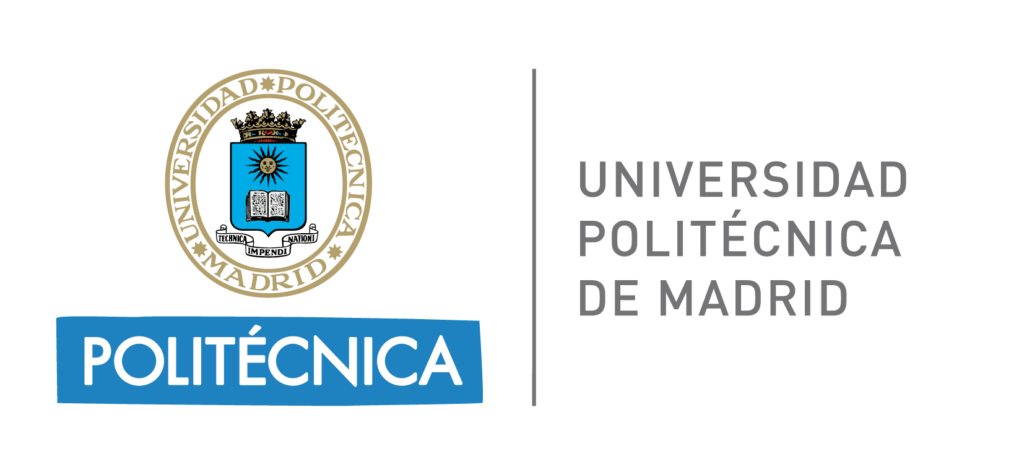The Polytechnic University of Madrid has a clear commitment to the transmission of knowledge (teaching), its generation (research) and its transfer to society in the form of collaborative research with companies, institutions and entities. A commitment aligned with the principles of the new economy that people, companies and society require.

The maximum use of the Digital Transformation derived from this commitment goes through the understanding of the new reality, the improvements in processes and services, the new digital offer, the social impact, etc. that the University offers to society, companies, the academic staff, students, administration and services staff, researchers and all those involved in their environment.
For this, the University articulates its Transformation Plan in 5 pillars:
- The development of people in emerging critical skills (behavioral, technical and digital) to ensure the right mix of talent and technology along with an internal management model for professionals to achieve the university's goals of digital transformation.
- Excellence in training of the students, in their intellectual capacities, work, ethical criteria, responsibility and integration in their environment, incorporating the new key competencies, training the leaders of the digital transformation of the future.
- The encouragement and support of the business fabric public and private in the face of new challenges (digital, global/international and new markets) for their updating and innovation process, research and knowledge transfer.
- Commitment to society and the principles of equality, sustainability, ecological transition and cooperation.
- The IT alignment with the best market practices: big data, cloud, cybersecurity, artificial intelligence, etc. and the continuous application of the trends of new digital habits.
These pillars have as key transversal missions:
- The new social requirements associated with internationalization, the green deal, sustainability, reindustrialization, competitiveness, resilience and equality.
- La accessibility for all properly contextualized and individualized.
- La new digital reality of people, companies and society.
The digital transformation of the organization is a fundamental step to be able to lead this new environment, allowing it to evolve rapidly, in such a way that the best possible results are achieved, offering quality services to the entire university community and society. This strong link between the Digital Transformation, the companies and the people that make up the institution means that the participation of the Social Council of the University in this process acquires great relevance.
1.1. Vision
We are building the Polytechnic University of Madrid of the Future, facing the challenges faced by all higher education institutions, especially public universities, in such a dynamic and changing national and international context.
UPM's Digital Transformation Plan is fully aligned with its Strategic Plan, which is based on six axes:
- Accredited quality academic offer
Commitment to dual and mixed training programs. Promotion of postgraduate training. Strengthening of the international and industrial doctorate. Definition of joint international academic programs. Improve learning through permanent innovation in the educational model, perfecting the quality system. Move towards a hybrid teaching model. Train the future leaders of the digital transformation of companies, through the development of an advanced digital profile.
- Global institution, open to the world
Firm commitment to lead the "EELISA European Universities Alliance", recently awarded by the European Commission, and the European graduate with real mobility and transnational recognition. Increase student exchange programs. Facilitate more international stays for faculty, researchers, staff and students, using the international headquarters. Continue strengthening our presence in Latin America, and our leadership in Asia.
- Lead research, transfer and entrepreneurship in the university environment
Encourage new topics of systemic, collaborative and multisectoral research, bringing together a significant number of researchers, and with an impact on society in the 2030 horizon. Promote attraction, retention and consolidation of talent. Consolidate and strengthen leadership in public-private collaboration and in the new framework program, as well as encourage UPM's participation in national and international networks. Support the research and technological infrastructures of the UPM based on scientific-technological services and identify new unique research facilities for shared use. Favor policies to promote employability and entrepreneurship with new instruments that reinforce national and international entrepreneurship "in the network" 2030, which allow us to continue being leaders in the promotion of university technology-based entrepreneurship in Spain.
- Good government
The main values of the management and government of the UPM must be transparency in management, rigor, accountability to the Governing Bodies and public administrations, the negotiation of all measures to achieve the maximum consensus of all groups and respect for people.
- Coexistence and social responsibility
Commitment to equality in diversity, with the implementation of equality policies for diversity groups. Development of the sustainability plan and the SDGs of the UPM. Commitment to action against climate change and sustainable mobility. Promotion of cooperation for development. Accountability, both administratively and socially, to demonstrate the added value to the investment that society makes in the UPM.
- Strategy and Digital Transformation
Procedures Simplification Plan and its corresponding digitization. Implementation of technological advances for Teleworking. Improve the user experience, developing new forms of relationship with the university, and new hyper-personalized products and services. Leverage the proliferation of data and new analytics capabilities to identify new solutions and business opportunities. Adapt the university to the new regulations: GDPR, accessibility, electronic administration, etc. Use of new technologies for the transformation of the university. Reduce the vulnerability of the digital environment by implementing combined cybersecurity systems that neutralize advanced threats, thereby contributing to the improvement of collective security.




